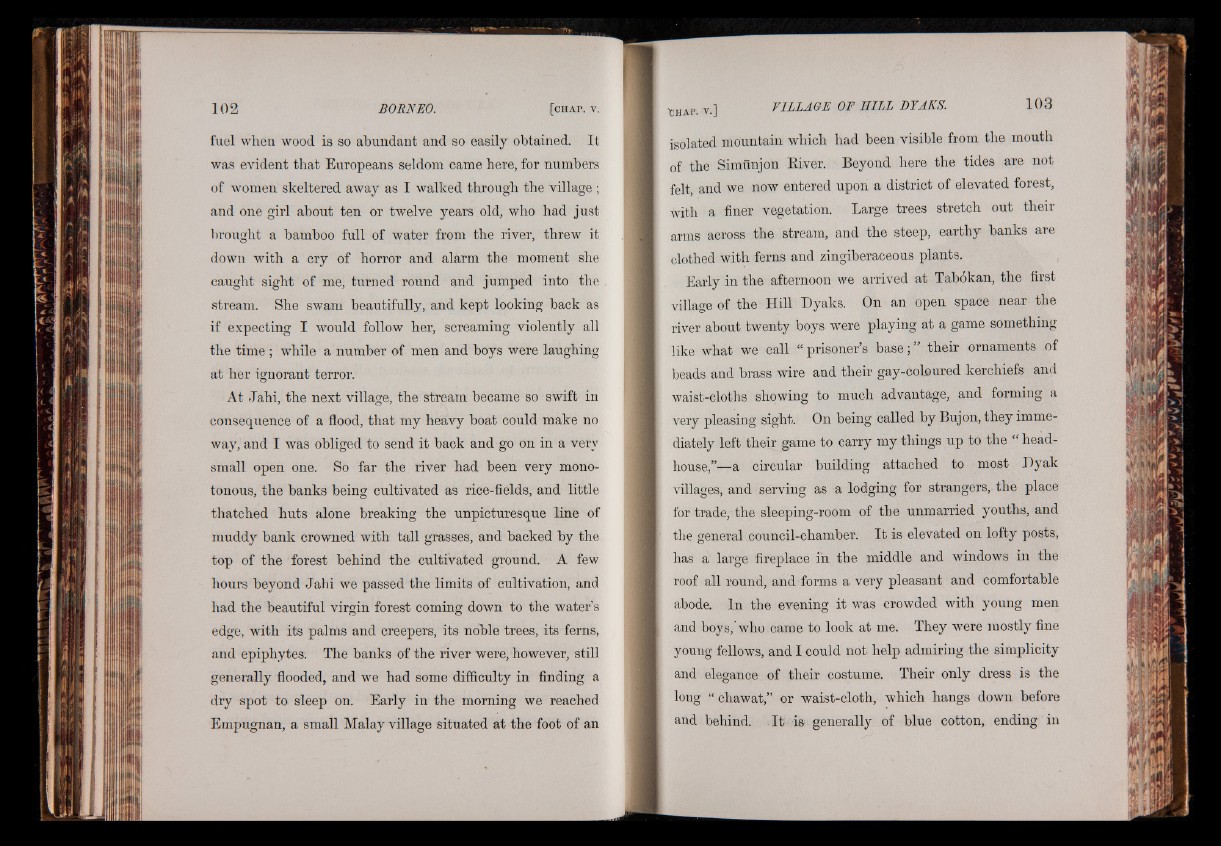
fuel when wood is so abundant and so easily obtained. It
was evident that Europeans seldom came here, for numbers
of women skeltered away as I walked through the village ;
and one girl about ten or twelve years old, who had just
brought a bamboo full of water from the river, threw it
down with a cry of horror and alarm the moment she
caught sight of me, turned round and jumped into the
stream. She swam beautifully, and kept looking back as
if expecting I would follow her, screaming violently all
the time ; while a number of men and boys were laughing
at her ignorant terror.
At Jahi, the next village, the stream became so swift in
consequence of a flood, that my heavy boat could make no
way, and I was obliged to send it back and go on in a very
small open one. So far the river had been very monotonous,
the banks being cultivated as rice-fields, and little
thatched huts alone breaking the unpicturesque line of
muddy bank crowned with tall grasses, and backed by the
top of the forest behind the cultivated ground. A few
hours beyond Jahi we passed the limits of cultivation, and
had the beautiful virgin forest coming down to the water’s
edge, with its palms and creepers, its noble trees, its ferns,
and epiphytes. The banks of the river were, however, still
generally flooded, and we had some difficulty in finding a
dry spot to sleep on. Early in the morning we reached
Empugnan, a small Malay village situated at the foot of an
isolated mountain which had been visible from the mouth
of the Simunjon River. Beyond here the tides are not
felt, and we now entered upon a district of elevated forest,
with a finer vegetation. Large trees stretch out their
arms across the stream, and the steep, earthy banks are
clothed with ferns and zingiberaeeous plants.
Early in the afternoon we arrived at Tabokan, the first
village of the Hill Dyaks. On an open space near the
river about twenty boys were playing at a game something
like what we call “ prisoner’s base;” their ornaments of
beads and brass wire and their gay-coloured kerchiefs and
waist-cloths showing to much advantage, and forming a
very pleasing sight. On being called by Bujon, they immediately
left their game to carry my things up to the “ head-
house,”—a circular building attached to most IIyak
villages, and serving as a lodging for strangers, the place
for trade, the sleeping-room of the unmarried youths, and
the general council-chamber. It is elevated on lofty posts,
has a large fireplace in the middle and windows in the
roof all round, and forms a very pleasant and comfortable
abode. In the evening it was crowded with young men
and boys, who came to look at me. They were mostly fine
young fellows, and I could not help admiring the simplicity
and elegance of their costume. Their only dress is the
long | chawat,” or waist-cloth, which hangs down before
and behind. I t is generally of blue cotton, ending in